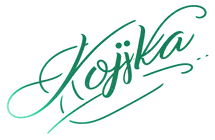What If... An Exercise
What If…
Asking the question ‘What if?’ provides a neat framework for the ideas spilling from you brain, which can often be chaotic. It is a way to give your creativity free rein. It is also a way to provide your daydreaming a purpose. ‘What if?’ Two simple words, one simple question and an important step in the creative process. It truly is a helpful tool for writers to use at almost any point in their writing. In fact, I’d go as far as to say that it is going to be one of the most important writing strategies you’ll ever use.
Begin with a simple idea, concept, or scenario. It could be a character, a place, an event, or any element you want to explore.
Take that starting point and start asking “What if?” questions to imagine different possibilities, twists, or alternative directions for your story or concept. For example, if your starting point is a character who just lost their job, you might ask, “What if this character found a mysterious job offer that seemed too good to be true?”
For each “What if?” question you ask, take some time to explore the scenario it presents. Write a brief description or scene that delves into that particular scenario.
Continue to branch out from each scenario by asking more “What if?” questions. Let your creativity flow freely and consider both conventional and unconventional directions.
After generating several scenarios, reflect on which ones resonate with you the most or have the potential to develop into a compelling story, character arc, or concept.
Take your selected scenarios and start developing them further. Expand upon the characters, settings, conflicts, and resolutions within these scenarios.
Depending on your preference, you can start writing scenes, chapters, or an outline based on the scenarios you’ve developed. This can serve as the foundation for a short story, novel, or any creative project.
Don’t be afraid to experiment with different “What if?” questions and explore unexpected combinations. Creativity often thrives in the realm of the unexpected.
The Exercise:
A person is always a product of where they came from; don’t neglect your character’s background when you determine who he is and what he does. Additionally, do the same exercises for your additional primary characters, antagonist(s), and any love interests in the story.
For the purpose of these exercises, I’m going to refer to the character as “Joe.” Obviously, use your own character’s name and gender as appropriate.
Every time you answer a question, write down at least one follow-up what if? For example, “What if Joe met his nemesis in a neutral public place?” Suppose my answer is “they would fight.” my follow-ups are: “What if Joe wins? What if he loses? What if the bar-owner throws him out? What if he has to pay for the damages? What if he goes to jail for it?” Play with your what ifs? When you’re writing, keep questioning the possibilities, pushing the envelope for what could happen, and finding the most fun-to-write answer to your questions.
Questions to Consider:
Where did Joe grow up? What if Joe had grown up somewhere else? What if he didn’t like his home? What if Joe wasn’t born there? Who is Joe’s biggest hero? What if Joe met his hero? Who is Joe’s nemesis? What if Joe met his nemesis in a neutral public place? What if Joe had a family, kids, etc.? What if Joe’s kids were part of Joe’s problem? How does Joe fit into your speculative element? Does he not believe in it? Is he an expert in it? Is he an outsider? What if Joe encountered something he didn’t believe could happen? How would he react? What would that something be? What secrets does Joe have? What if his nemesis knew his secret? What if a love interest knew? What will Joe do to protect his secrets? What does Joe not know about himself? What if Joe wasn’t who he thinks he is? What if he learned about himself? How would he take the information? What if Joe left home? What if he returned? What if Joe became an outsider or outlaw?
Keep going with questions about Joe’s life until you get really tired of Joe, have such a great idea of what he would do or not do in any situation, or are ready to move onto another character.
Some Generalized Questions:
- What if the opposite were true?
- What if the setting changed drastically?
- What if technology played a different role?
- What if a character made a different choice?
- What if a minor character became the protagonist?
- What if an important event never happened?
- What if a character had a hidden agenda?
- What if a character possessed a unique ability or power?
- What if the conflict escalated or de-escalated?
- What if the story had a different genre or tone?
- What if external forces intervened?
- What if the story were set in an alternate reality?
- What if the story unfolded in a different time frame?
- What if the story had a different cultural backdrop?
- What if the story involved a major conspiracy or cover-up?
- What if the main character had a long-lost twin?
- What if the story’s events took place in a different order?
- What if the story were told from a different character’s perspective?
- What if the story was a series of interconnected short stories or vignettes?
- What if the story featured a non-human protagonist?
- What if the story were set in a post-apocalyptic world?
- What if the story incorporated elements of time travel?
- What if the story took place in an entirely different environment?
- What if the story involved a character with total amnesia?
- What if the story was a musical or included songs as a central theme?
- What if the story revolved around a forbidden or taboo romance?
- What if the story featured an unreliable narrator?
- What if the story had elements of magical realism?
- What if the story explored the consequences of a scientific discovery?
- What if the story delved into a character’s dreams or nightmares?
What do you think of this exercise? Throw a comment at me down below. I would love to hear your thoughts.



